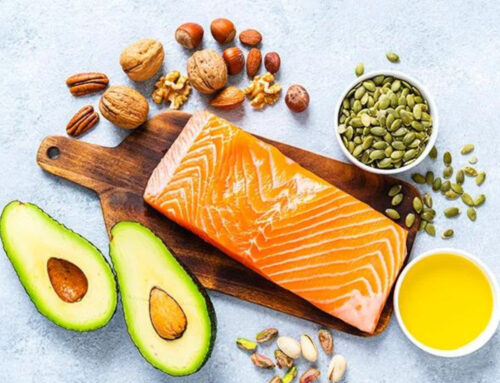Have you ever considered where anxiety comes from inside the body? Well, there is a part of the midbrain called the amygdala and the job of the amygdala is to keep you safe. It’s always on the lookout for danger. When it perceives danger or a stressful situation—whether valid or not—it triggers a “fight, flight or freeze” response.
The thing is, we can often get locked into this constant state of reactivity, where the amygdala gets stuck in perceived danger, usually based on past events. I often refer to this as having an “amygdala brain”. It can feel like no matter what you do, you’re stuck in a feeling of stress and anxiety.
While the amygdala sends information to the body, it will also take in information from the body. So if you are eating unhealthy foods, the body hasn’t had enough sleep or exercise, the body will send signals of distress to the amygdala. The amygdala will then release an excitatory chemical called glutamate, telling the brain that there is a crisis.
How Can fasting help relieve anxiety?
In one study done on women, researchers found that while short term fasting caused irritability, long term fasting led to a “positive affective experience of increased sense of achievement, reward, pride, and control.” So longer fasted states can help the amygdala feel a greater sense of control, that will calm it down.
==>The study concluded that overall fasting can be a tool for calming anxiety.
The second study I looked at was done on mice, and the results showed “a 24 hour fast reduced anxiety-like behavior by 40%”. We know that at about 13-15 hours of fasting, the body begins to make ketones. The longer you fast, ketone production typically increases.
Ketones go up into the brain and initiate your brain to release GABA, a calming neurotransmitter that has the opposite effect as glutamate.
So if long term fasting can ultimately help relieve feelings of anxiousness, I wanted to give you a few tools to help you overcome the temporary feelings of irritability that you may experience with shorter fasting, typically less than 24 hours.
How to overcome temporary states of fasting irritability
-
- Walk around the block. When you are feeling anxious, go outside and do things like walking or running. This will actually help the amygdala begin the process of calming down. So my #1 recommendation if you are in a shorter fast and feeling that sense of irritability, is to get outside and get some light exercise!
- Try CALM. This supplement is designed to help promote a feeling of calmness and relaxation during times of stress, CALM provides nutrients that play a role in the synthesis of neurotransmitters, such as serotonin and dopamine with L-Dopa and SAMe.
- Take KavaPlex. KavaPlex is a full spectrum, shelf stable kava oil. Traditional kava is a drink prepared from the roots of Piper Methysticum, a plant native to islands in the South Pacific, where it is used for its natural relaxing qualities. Most notably Kava has been shown to enhance the activity of the body’s main pleasure chemicals dopamine, serotonin, and GABA, creating a sense of stress relief and relaxation, deeper sleep and boosting mood. Use code RESETTERS for 15% off.
Listen to these 3 The Resetter Podcasts on how to train your mind.












Hello – I am a huge fan of fasting and of Dr Mindy – thank you for helping so many women figure their bodies out ! While I have mastered shorter fasts, I am finding it very challenging to get to 24hrs …and I never seem to reach that ‘I don’t feel hungry’ stage. Do you have any tips from your community on how they carry on fasting ? This would be a great YouTube video ! Thank you , Stephanie